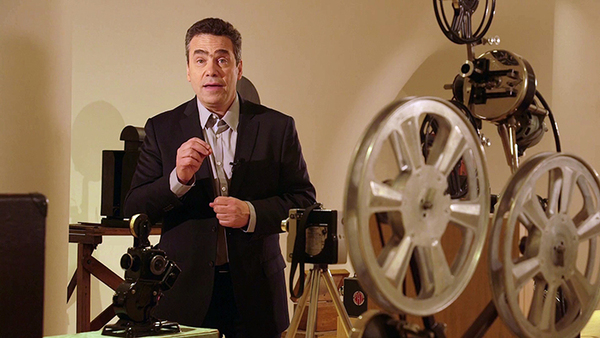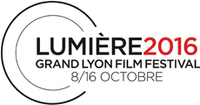Serge Bromberg :
"The films of Buster Keaton are irresistible, surprising and almost universal"
Posted on october 11, 2016
"At any age, if you watch one minute of Keaton, you can't stop. His films are more than mere distraction comedies; they make us happy through their sincerity and intelligence, they open our eyes and minds." Thus spoke Serge Bromberg, producer, director, artistic director and director of DVD collections of silent films. Interview.

The Cameraman was screened three times at the festival (the first at the Comoedia, where Quentin Tarantino nearly broke his chair laughing!). It was the first film by Buster Keaton at MGM, an experience that would mean the beginning of his descent into hell. How do you explain that this film in particular spoke to audiences?
We often have an angelic idea of the cinema. The reality is that Keaton, whose films had waning success with his previous producer, was an important asset to MGM, who gave the film a big publicity campaign and very active distribution, capitalizing on the notoriety of Buster. But The Cameraman was especially the last great movie directed by Keaton, who took control of the staging, although contractually he was supposed to be a simple actor. Yet already, The Cameraman was being further hurt by Hollywood box office sales, starting with inevitable romance films, which came to leech off the universe of the great master. The arrival of talkies the previous year had somehow sealed the fate of the burlesque theater, and if Buster was still successful it is also - and especially - because movie theater chains had not yet had the time to fit all the projectors with sound playback systems. At the release of Keaton's next film in 1929, Spite Marriage, the sound of movies was already in everyone's ears, and people want nothing but "talkies," whether they were quality films or not. The wind had definitely changed.
Why should we run to see these films?
At the beginning of burlesque cinema, there was Chaplin and then there was Keaton. Both these incandescent stars lit up, in their own way, the last fifteen years of silent films (simply referred to as "cinema" at the time, because sound didn't exist). Their imagination was boundless, their genius uncontested, and their mastery of playing with cinematographic language and staging, are rivaled by few to this day. They had both come from vaudeville backgrounds, giving them the most educational yet painful experiences.
However, for Keaton as well as Chaplin, the cinematic result was irresistible, surprising and almost universal.
Interview by Charlotte Pavard
The Cameraman by Buster Keaton and Edward Sedgwick (1928, 1h16)
Comoedia Tue 11 at 11am l Villeurbanne Thu 13 at 8:30pm l Pathé Bellecour Fri 14 at 6:45pm - CC

